CONTENTS
The ABCs Of Carry On Luggage Rules: Master The Art Of Carry-on Packing
Between the Transportation Security Administration (TSA) regulations and airline carry-on rules regarding size requirements, carry-on luggage rules can be confusing. Take a few minutes to read this guideline and plan a complete list for both your carry-on bags and checked luggage. Plus some tips on what to pack in your carry-on best.
For your next flight, before packing your bag and luggage, be certain of what’s not allowed in hand luggage. This will ensure a positive flying experience and a stress-free time at airport security. So what can you carry on a plane? Here is our outline of everything you need to know about carry-on luggage restrictions.
What Can You Bring On A Plane?
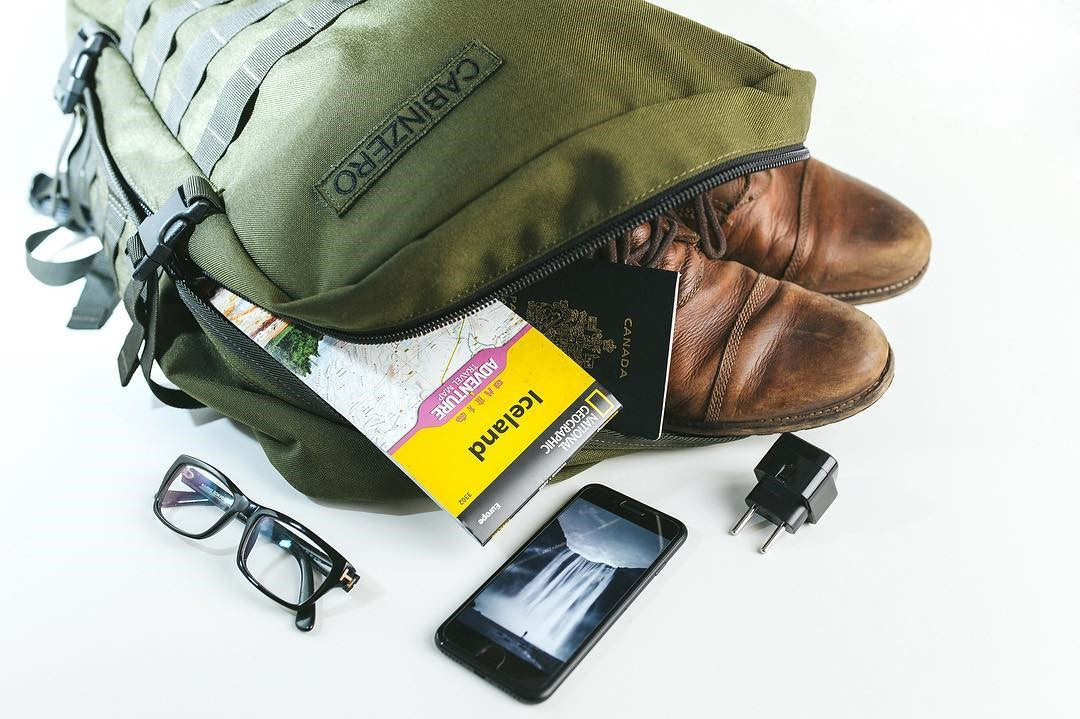
TSA carry-on rules generally include the popular 3-1-1 liquids rule, restrictions on boarding with knives or flammable liquids, and other personal items.
Do you know that certain items are allowed in hand baggage only? To avoid your items being confiscated by TSA agents, pay attention to allowed items in contrast to certain items that are prohibited in this list.
Here is our take on the backpacking must-haves. Depending on your trip, you can add more items or remove items to simplify your packing list.
Food
You can bring fresh, cooked or frozen food on a plane. In most cases, meat and seafood are allowed on a plane as long as they are not in liquids. If your food needs to be kept on ice, ensure the ice or the ice packs are completely frozen before security screening. Partially melted ice packs are considered liquid and thus will be subject to the liquid rule (more on this later).
Aside from the TSA carry-on rules and checked bag rules regarding food, you should check your baggage allowance and airline carry-on rules to ensure that your food containers are within the allowed limits.
Toiletries
Shampoo and deodorant are allowed in both carry-on and checked bags if:
- They are in containers with less than 100 millilitres (3.4 ounces); and
- All these travel-sized containers must fit into one quart-sized bag.
If you are worried about this limitation, consider solid shampoo options. They are not not limited in size according to airline carry-on rules.
Hair products such as hairspray and gel are generally allowed in your baggage if stored in 100 millilitres (3.4 ounces) containers or smaller. For example, you can bring aerosol spray or powdered hairspray under 100 millilitres (3.4 ounces) on a plane.
Personal care and hygiene products such as hand care, feminine care and dental care products are allowed on aeroplanes. For example, one frequently asked question is can you bring toothpaste on a plane. Our answer is yes, as long as it is stored in a container of less than 100 millilitres (3.4 ounces).
The good news is that this rule will come to an end. U.K. airports has starting to do so and expect to fully erase the rule by June 2024. However, remember that it may not be the same for different countries, or across Europe.
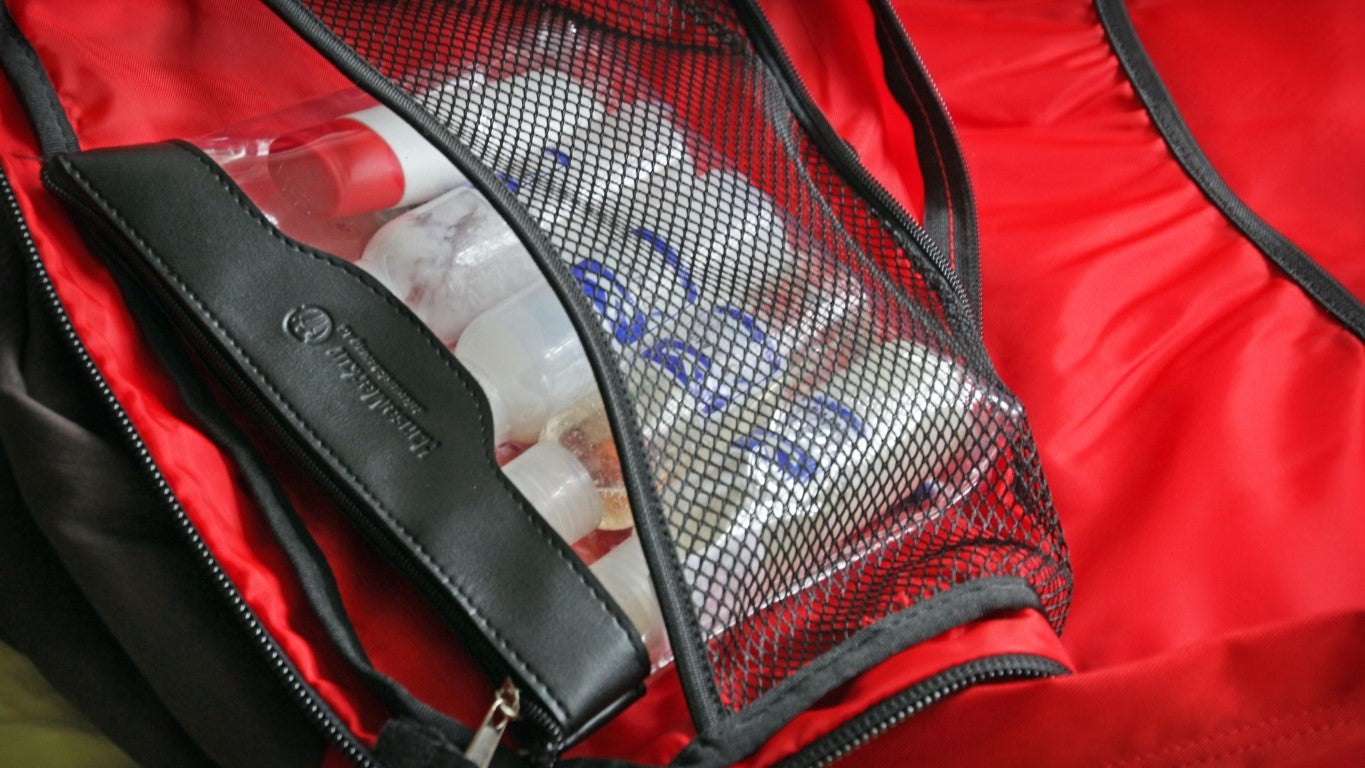
Breast Milk And Other Baby Supplies
If you are travelling with children and worry about the security screening process, reassure and take the baby supplies you need.
From breast milk to powdered formula and baby food, as long as they are in reasonable quantity and are properly packed for air travel, you are good to go. However, be sure to pack them accessible, as you might need to place them in a separate bin for screening.
Planning to fly with strollers or car seats? During the screening process, you must fold or collapse large items for X-ray scanning.
If your item cannot fit in the X-ray machine, TSA agents might conduct a visual and physical inspection. We recommend checking with your airline beforehand to make sure that your items are allowed on their flight.
Medications and Other Medical Supplies
Travelling with medical supplies is not the easiest, especially when some passengers require needles and other equipment. As a good rule of thumb, you should notify agents at security checkpoints if you have a medical device attached to your body before the screening.
For medical supplies and other medications, they might be required to undergo separate security screening and testing. Pack your medically necessary gels, aerosols and medicines in reasonable quantities and declare them at the security checkpoint. Keep in mind that this is applicable to over-the-counter medications as well.
Razors and Other Sharp Objects
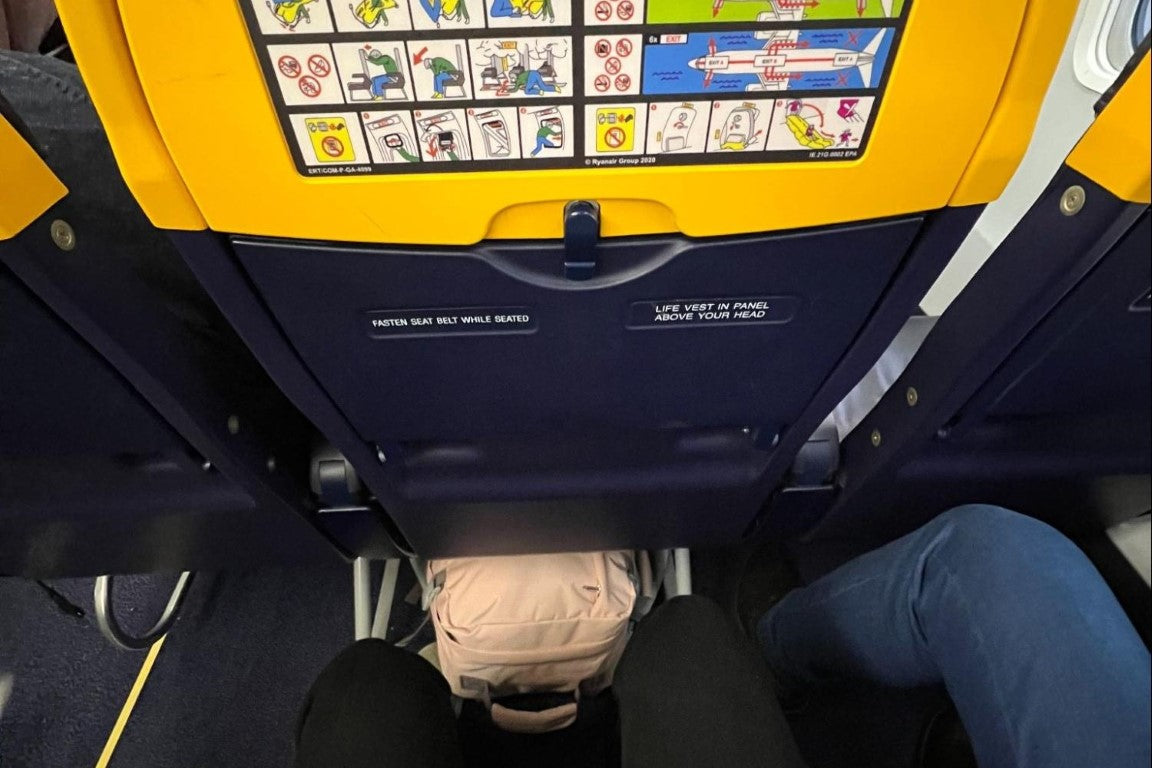
When it comes to sharp objects and air travel, it is best not to risk violating carry-on luggage restrictions. For razors, disposable razors and razors with cartridges are allowed in your hand luggage.
Safety razors with no blades installed are allowed in your carry-on. For straight razors and blades for safety razors, you must pack them in your checked luggage only.
Batteries And Batteries Chargers
Among what you can carry on a plane, batteries are allowed, but not all types. If you must bring batteries on your flight for either business, leisure or health reasons, be sure to distinguish different types of batteries. Some are allowed in carry-on bags, while some are allowed in checked bags only.
For carry-on bags, batteries that are allowed include:
- Dry cell alkaline batteries (e.g. typical AA, button-sized cells)
- Lithium-ion batteries for consumers (e.g. batteries for cell phones, cameras, and standard laptops).
As we travel with more gadgets, it is essential to note that portable chargers are permitted in carry-on bags only. This applies to power banks, spare lithium-ion batteries, and other external battery chargers.
For checked bags, except lithium batteries, most batteries allowed in carry-on bags are allowed in checked luggage.
However, it is highly recommended that you pack your batteries in carry-on bags. The reason is that you and the airline crews can access the batteries in case of a fire.
What Is Not Allowed In A Plane's Carry-On
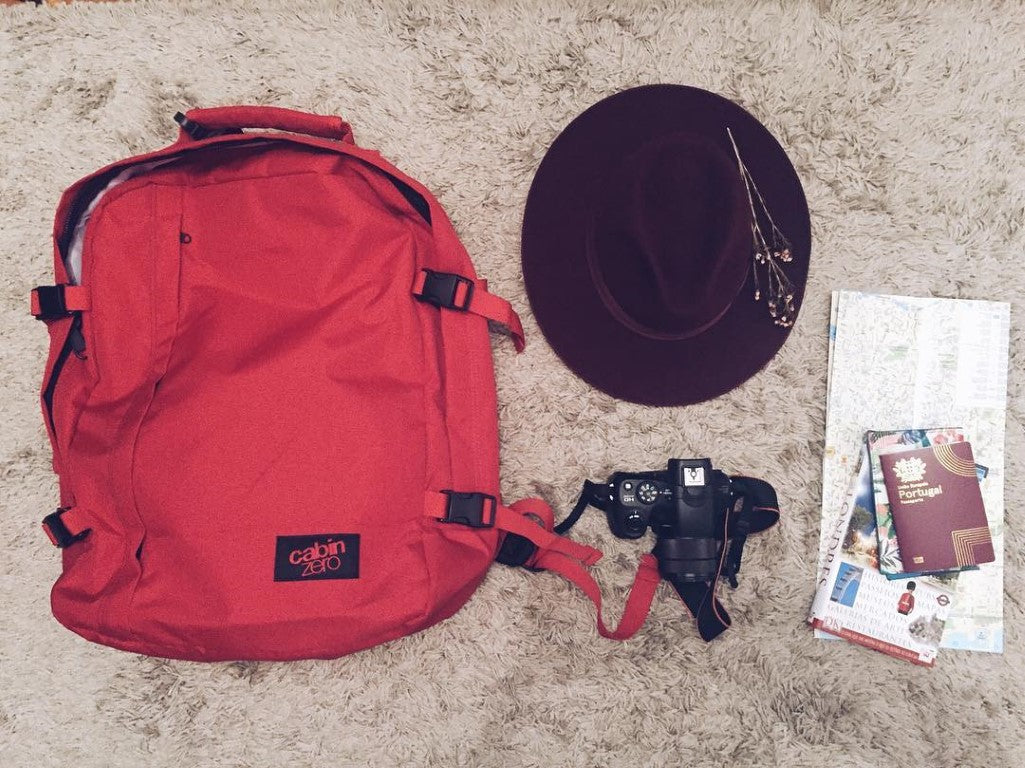
For even the most frequent flyers, navigating through the list of prohibited items by the TSA can be a daunting experience. Let's ease some of your stress before flying with these banned items for carry-on baggage.
Alcohol And Flammable Items
Among what is not allowed on a plane carry-on, Alcoholic beverages with an alcohol percentage of over 70% are not allowed in both carry-on and checked bags.
For alcoholic beverages, a good practice is to check with your airline before bringing them on board. It is important to remember that travellers are prohibited from consuming alcohol on board unless served by flight attendants.
Passengers are each allowed one disposable lighter in carry luggage. However, other lighters such as gun lighters, electronic lighters and torch lighters are not allowed in both carry-on and checked bags.
Sharp Objects and Weapons
Sharp knives are among items not allowed in hand luggage, including pocket knives, ice picks and box cutters. According to the TSA rules, sharp objects in checked luggage must be sheathed or securely wrapped.
This is to project airport inspectors and baggage handlers. If you are travelling with sharp items, it is best that you wrap them well and pack them in your checked luggage only.
For your grooming needs, note that straight razors and safety razors are not permitted in carry-on bags since these razor blades are easy to remove and could hurt others.
Ammunition, axes, hatchets, baseball bats or other sports equipment that can be used as a weapon are also prohibited in carry-on luggage.
Car Batteries And Other Prohibited Batteries
For both carry-on and checked bags, car batteries, spillable batteries and wet batteries are prohibited by the TSA carry-on rules. The only exception is if these batteries are being used by a wheelchair or a scooter.
If you intend to pack a spare battery for your wheelchair or scooter, you must inform the TSA agents and the airlines beforehand.
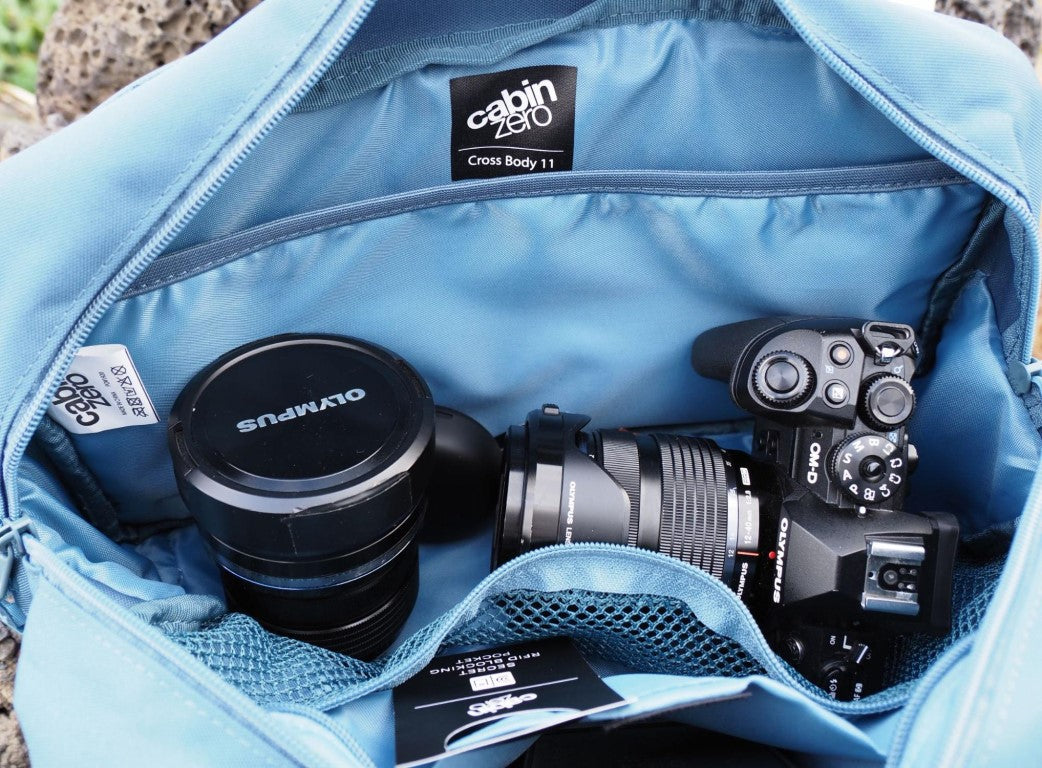
Hand Baggage Rules
Between TSA rules and airline rules, navigating hand baggage rules can be confusing. Exceeding baggage allowance can certainly affect your trip (and your wallet). From size and weight restrictions to the type of personal items that you can bring, we have got you covered.
Size dimensions and weight allowance of hand baggage allowed in the cabin vary by each airline. Be sure to pay attention to the baggage allowances offered by airlines to avoid extra fees, especially budget carriers. Furthermore, it is best to not confuse your carry-on allowance and checked bag allowance.
Size Requirements
The standard size for carry-on bags is 56 cm x 36 cm x 23 cm (22 inches x 14 inches x 9 inches), which includes both the handle and the wheels for suitcases. This is the industry standard, and it fits most airline requirements. The size limit is to ensure that carry-on luggage can be safely stored in the overhead cabin.
Aside from your carry-on, many airlines allow each passenger to bring a personal item such as a purse, a laptop bag, a small backpack or a small briefcase. For personal items, the dimension should not exceed 45 cm x 35 cm x 20 cm (18 inches x 14 inches x 8 inches). As a general rule, make sure your personal item can fit under the seat in front of you to avoid additional fees.
Weight Requirements
Similarly, weight requirements vary from airline to airline, from no weight restrictions to specific limits depending on your flight route.
For instance, American Airlines has no weight restrictions. Delta, on the other hand, requires your carry-on to be between 15-22 lb at Changi International Airport (SIN), Beijing Capital International Airport (PEK), and Pudong International Airport (PVG).
Be sure to check with your airline beforehand, especially if you are expected to be on connecting flights. If you want to be quick, you can easily access the carrier’s main website and read their baggage allowance in the travel information sections.
Items That Are Only Allowed In Hand Baggage
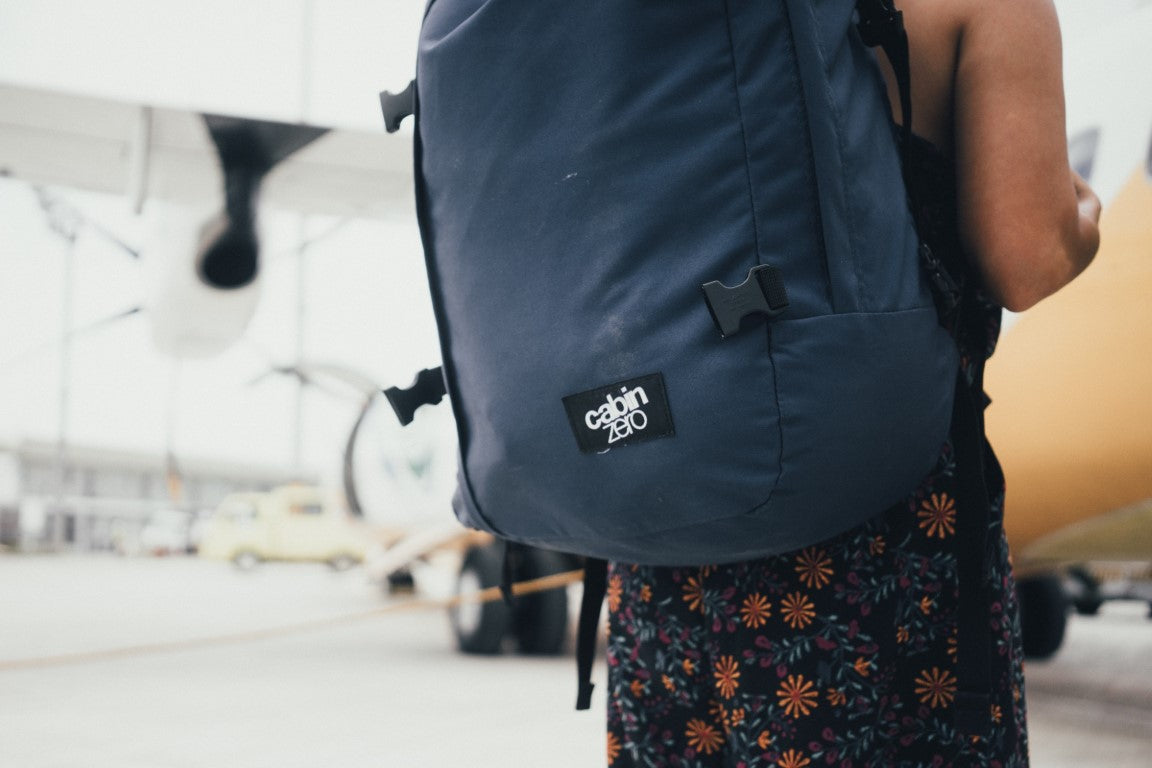
An easy travel experience starts with a smooth screening process. Be sure to pay attention to the items that are allowed in your hand baggage and not in your checked baggage.
- Lighters including arc lighters, electronic lighters, e-lighters and plasma lighters. Different measures must be taken to limit the threats of unintentionally activating these heating elements inside a plane. Therefore, these are only allowed in carry-on baggage under special instructions.
- Butane curling irons are allowed in carry-on bags only, under special instructions. The reason is that cordless curling irons contain a gas cartridge. Therefore, a safety cover is required over the heating element, and the curling irons must be prevented from unintentional activation. It is important to note that gas refills or spare cartridges are prohibited in both carry-on and checked bags.
- Cordless hair straighteners and flat iron are only allowed in carry-on bags with the same safety measurements as curling irons. They must have a safety cover over the heating element and be safely protected from being accidentally activated.
- Lithium batteries with over 100 watt-hours, including uninstalled lithium ion and lithium metal batteries, are allowed in carry-on baggage only. Two examples are power banks and charging cases for cell phones.
- Medical devices that are implanted, ingested or fitted externally and personal medical oxygen cylinders.
- Safety matches are allowed in carry-on baggage. All other matches, including strike-anywhere ones, are prohibited in checked baggage.
Advice For Air Travellers
Before you pack your bags, print out your boarding pass and set out on your exciting journey, let's have a look at our advice to avoid any hiccups on your next trip.
Pack For Easy Travel
All bags are screened by TSA officers, including carry-on bags and checked bags. Large electronic items such as laptops, game consoles and tablets are often subjected to separate screening.
This is applicable for travel liquid bags as well. Be sure to pack these at the top for easy access and be organised in case you need to take them out in the middle of security screening.
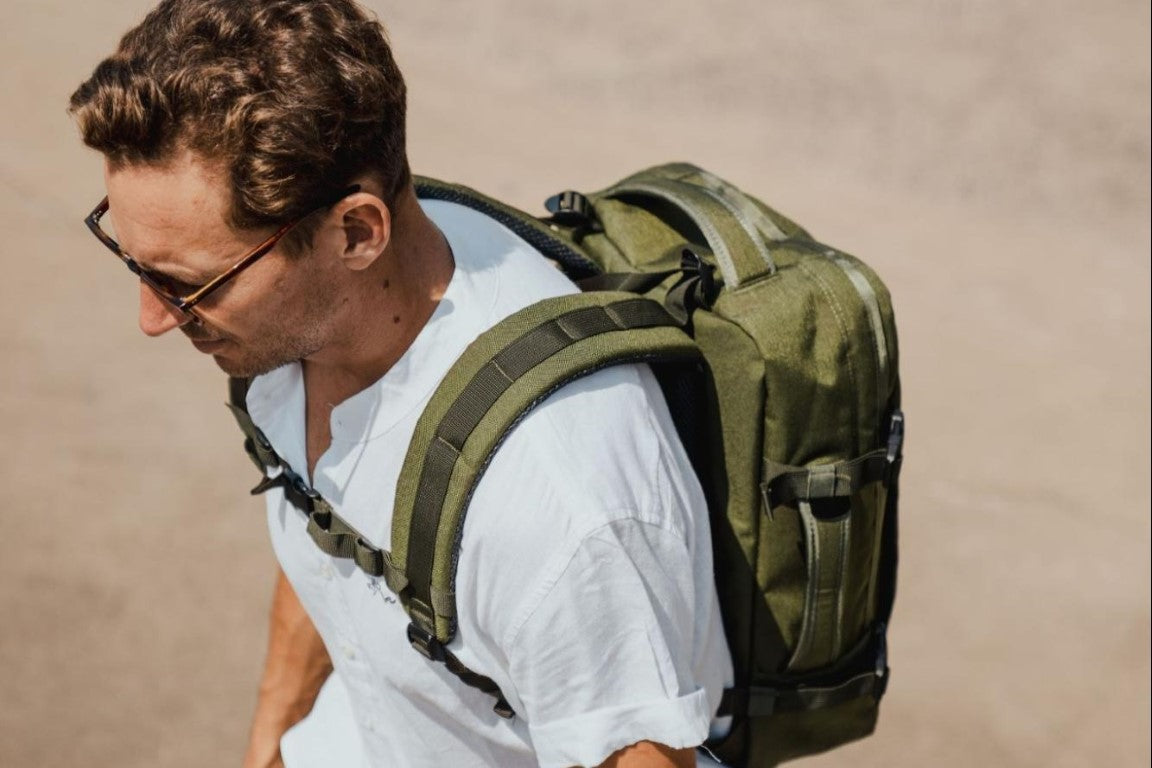
For easy travel, carrying a backpack can be more convenient if you are not keen on waiting to check your suitcase. Travelling with a backpack instead of a suitcase is not for everyone, but the upsides are worth considering.
A quality backpack designed for air travel can do so much, from having your hands free to not having to worry about airline carry-on rules. They are the epitome of a travel accessory that changes it all.
Dress For Success
During the screening process at airports, there are more things you need to pay attention to outside of carry-on luggage rules. Wearing an easily removable pair of shoes is highly recommended.
Comfortability is a key factor to consider, given how much walking you might need to do within the airport and when you arrive at your destination. Sitting on long flights with a pair of uncomfortable shoes is also not the best idea.
Choosing what to wear on a plane strategically can make your travel experience smoother and more comfortable such as comfortable bottoms with elastic waistbands or well-fitted tops with stretchy materials that can easily layer up. Aside from fashion, remember to prioritise comfortability and practicality on your trip, especially during long flights.
Choose Cabin Bags That Satisfy Size and Weight Requirements
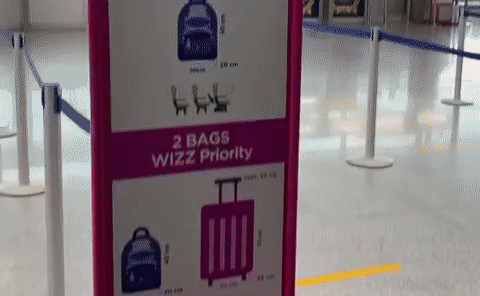
When it comes to the allowed size and weight for bags, each airline has different policies. There are different baggage fees that you might encounter, such as extra bag fees, oversize bag fees, overweight bag fees and so on. If you plan on flying internationally and expect to be on different connecting flights, be sure to check the size and weight requirements for each flight.
Baggage fees are determined by your destination, elite status and fare class. It is confusing to navigate through. As always, one of our favourite tips is to travel light. It is not for everyone, but if you plan to have a hassle-free trip, try to consider travelling with cabin bags that fit most airlines' bag requirements.
FAQ
1. How Much Cash Are You Allowed To Carry On Your Person?
For international flights, different regulations regarding cash allowance are applicable at different customs. For example, if you are carrying over 10,000 euros, most European countries would require you to declare. This is to assure authorities that your money is not related to criminal activities.
2. Can I Bring Both A Backpack And A Carry-on Suitcase On An International Flight?
Most airlines allow passengers to board with a carry-on suitcase within 56 cm x 36 cm x 23 cm (22 inches x 14 inches x 9 inches) and a personal item within 45 cm x 35 cm x 20 cm (18 inches x 14 inches x 8 inches). However, depending on your airline carry-on rules, it is good to double-check the airline carry-on rules and then measure your suitcase before packing.
3. Is Deodorant Considered A Liquid When Flying?
For stick and powder deodorants, there is no limit in size. For liquid, gel, spray, roll-on and paste deodorants, the limit is no more than 100 millilitres (3.4 ounces) per container and one quart-sized bag per passenger.
4. Can I Fly With A Razor?
All razors are allowed in checked baggage. However, for carry-on baggage, disposable razors are permitted as well as safety razors without removable blades. For checked baggage, straight razors, disposable razors, razors with cartridges and safety razors with blades are allowed.
5. Can I Bring Batteries On A Plane?
"Dry" batteries such as AA, AAA, C, D and 9-volt are allowed. For carry-on baggage, lithium batteries with under 100-watt hours installed in an electronic device are allowed, while uninstalled lithium batteries are not. Most electronic devices and their batteries must be kept in the aircraft cabin.
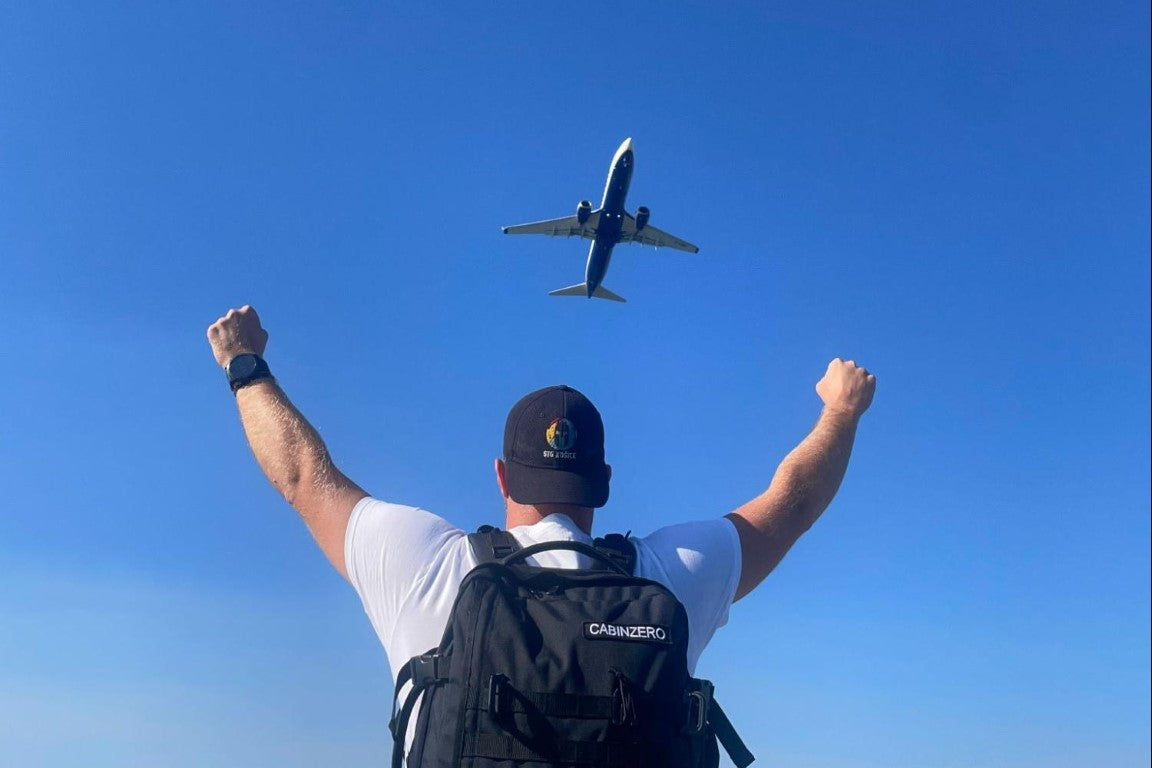
Carry On Luggage Rules: The Complete List
There is a lot of confusion regarding carry-on luggage rules, from what you can carry on a plane to items not allowed in hand luggage. If you need more information on travel tips, you can find them in our related articles.
Whether you are a seasoned traveller or an infrequent one, we hope this guide is useful for you. So pack your luggage, have fun travelling and stay hassle-free.
Chau Dao





Can a cardboard photographic tube 92cm long be carried on board and stowed in an overhead locker?
can you have a regular lighter in your carry on
Can I bring dental adhesive on a plane?
Can a person bring drawing pad with pencils on a plane.?
Leave a comment